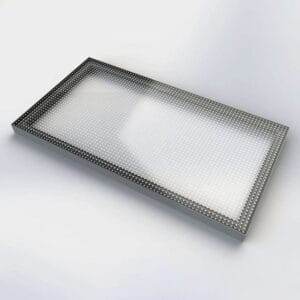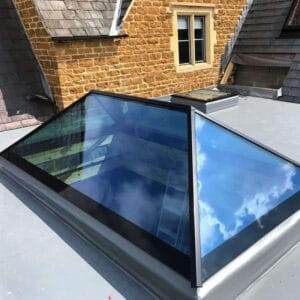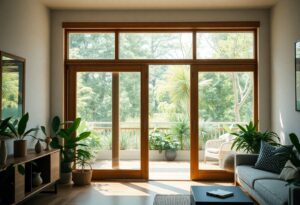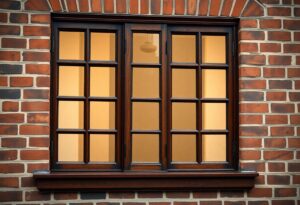Just as your home is a reflection of your personal style, the solution to unwanted noise can be tailored to suit your specific requirements. Acoustic windows are designed to minimise external disturbances while enhancing your indoor comfort. By selecting the right materials, thickness, and installation options, you can create a tranquil environment that meets your lifestyle needs. This blog post will guide you through the intricacies of customising acoustic windows, ensuring that you make informed decisions for your peace of mind.
Understanding Acoustic Windows
While finding ways to mitigate unwanted noise can be challenging, understanding acoustic windows is crucial for achieving peace in your living or working space.
Definition and Purpose
An acoustic window is specifically designed to reduce external noise using advanced materials and technology, such as laminated glass and sound-dampening frames. Their primary purpose is to enhance noise control, setting them apart from standard windows, which often allow sound to penetrate easily.
Benefits of Acoustic Windows
Above all, the installation of acoustic windows offers numerous advantages, including increased sound insulation, enhanced comfort, and potential energy savings. Furthermore, they can significantly improve your property value while creating a quieter environment conducive to both living and working. (Choosing the right acoustic window type is a key factor in maximising these benefits.)
Above these initial benefits, acoustic windows also contribute to better overall well-being by decreasing disturbances that can lead to stress and reduced productivity. By incorporating these windows into your space, you take a positive step towards a more peaceful atmosphere. (Investing in acoustic windows is a decision that will influence your comfort for years to come.)
And as you contemplate this investment, focus on the long-term benefits of noise reduction, which include improved mental health, better sleep quality, and enhanced concentration. This can vastly improve your daily life, making it invaluable to consider your specific noise challenges when selecting appropriate solutions.
Noise Assessment
You should begin with a comprehensive noise assessment to understand the specific challenges you face in your property. Evaluating the noise environment will guide you in determining the right acoustic window solutions tailored to your needs.
Types of Noise
You need to identify the various types of noise impacting your property, as they can greatly differ. Common types include:
- Traffic
- Industrial
- Environmental
- Domestic
- Commercial
Perceiving these distinctions will assist you in addressing the specific noise challenges that you may encounter as a property owner or manager.
| Type of Noise | Impact Level |
|---|---|
| Traffic | High |
| Industrial | Medium |
| Environmental | Low |
| Domestic | Variable |
| Commercial | Medium |
Measuring Noise Levels
To accurately assess your situation, you need to measure noise levels using sound level meters or engaging with acoustic professionals. These accurate measurements are necessary for devising effective, customised solutions for your acoustic windows. (Your next step should involve consulting an expert.)
With the right methods in place, including sound level meters, you can obtain precise noise level readings that inform your decisions. Collaborating with acoustic specialists allows you to consider all factors that affect your environment, ensuring you make an informed choice. (Prioritising accuracy in these measurements can significantly enhance your space’s comfort.)
Customization Options
The key to achieving effective noise reduction with acoustic windows lies in the various customization options available. From selecting materials to design choices, you have the ability to tailor solutions that meet your specific soundproofing needs.
Materials and Design
About the materials used in acoustic window manufacturing, you’ll find options like laminated glass and gas fills, each with unique properties that can be customised for optimum noise reduction. Laminated glass dampens vibrations, while gas-filled spaces enhance insulation. Design aspects, such as frame type and thickness, can further improve acoustic performance, ensuring that your windows are not only functional but also align with your aesthetic preferences.
Installation Techniques
By employing various installation techniques for acoustic windows, you can significantly enhance their noise reduction efficiency. Professional installation is vital to ensure that your windows fit correctly and perform as intended. This includes precise sealing and alignment to minimise sound leakages. (Opt for experienced fitters to guarantee optimal results.)
Materials chosen for installation, such as high-performance sealants, also play a role in reducing sound transmission. By selecting the right materials, along with expert installation, you ensure your windows will function at peak performance, providing you with the peace and quiet you desire. (The choice of a qualified installer is a decision you shouldn’t overlook.)
Case Studies
Many successful installations of acoustic windows have been documented, showcasing the significant impact on noise reduction. Here are some relevant case studies:
- Residential project: A family in a busy urban area reduced noise by 75% after installing acoustic windows.
- Commercial office: A law firm reported a 40% decrease in ambient noise, improving productivity and client satisfaction.
- Hospitality sector: A hotel noted a 60% reduction in street noise, resulting in higher guest ratings.
Residential Applications
With an increasing number of homeowners turning to acoustic window solutions, case studies reveal impressive outcomes. One family highlighted their satisfaction, stating that their home has become a soothing retreat from the bustling city life. Another homeowner remarked on the reduced disturbances, stating, “We can finally enjoy a peaceful night’s sleep.” (Choosing acoustic windows is an important decision for enhancing personal comfort.)
Commercial Applications
Between various commercial sectors, many have benefited significantly from acoustic window installations. For example, offices experiencing high levels of external noise have found that acoustic windows enhance focus and reduce distractions. This, in turn, leads to improved employee morale and customer satisfaction levels.
Studies indicate that workplaces installing acoustic windows often see a dramatic improvement in noise management, with effects such as increased productivity and enhanced customer experiences. Many businesses have successfully minimised noise-related complaints, leading to a positive atmosphere for both employees and clients. Your decision to invest in acoustic windows could transform your working environment significantly.
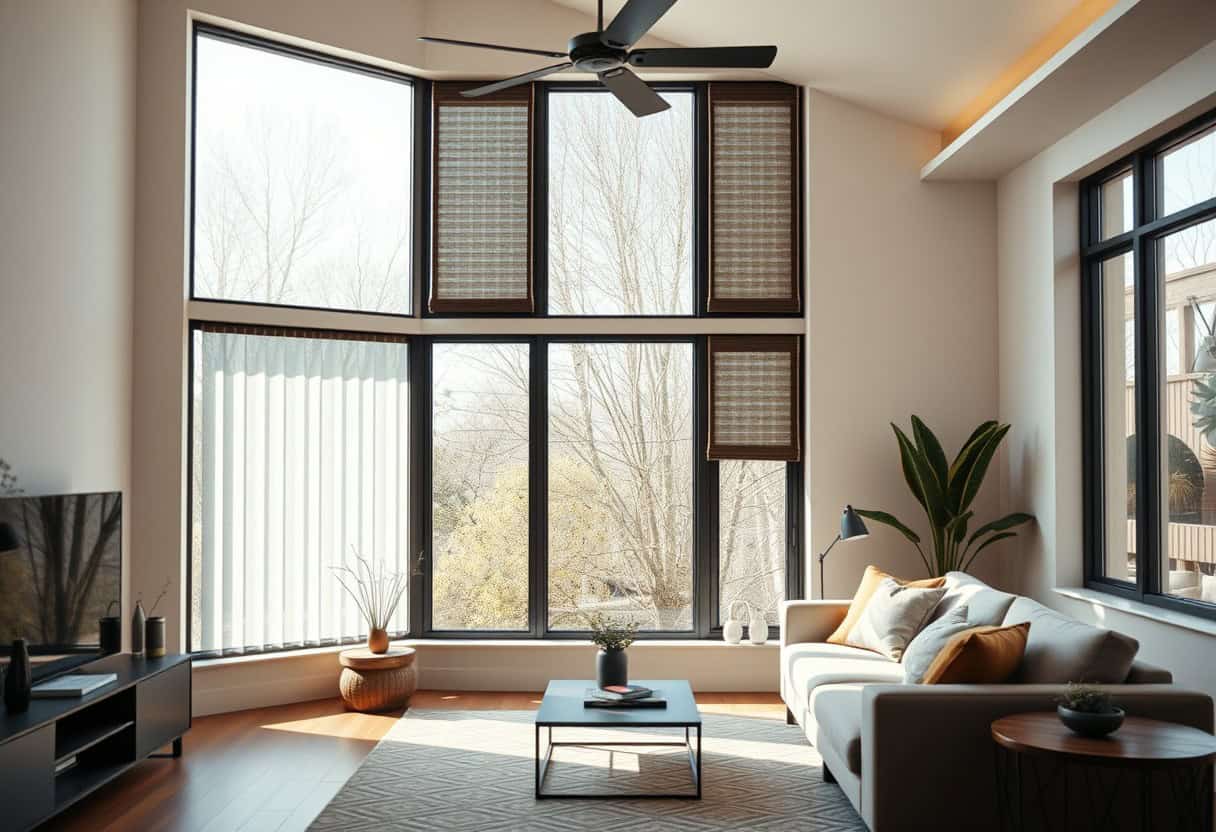
Maintenance and Durability
Keep your acoustic windows in optimal condition to maximise their effectiveness and lifespan. Regular inspections for signs of wear, such as scratches or seals failure, are vital. Ensure you explore Acoustic Steel Windows for durable options. You might consider an annual professional assessment to address any potential issues early.
Care for Acoustic Windows
Care for your acoustic windows by regularly cleaning the frames and glass with a soft cloth and mild detergent. Avoid abrasive materials that could damage the surface. Check the seals for any wear; minor repairs can often be completed using silicone sealant. (It’s imperative to maintain these components to uphold your windows’ sound insulation properties.)
Longevity and Performance
Maintenance of your acoustic windows largely depends on environmental factors, such as humidity and temperature fluctuations, as well as normal wear-and-tear over time. Product warranties typically range from 10 to 30 years, offering insights into expected performance lifespans. (You should consider warranties as a significant aspect when investing in acoustic windows.)
This is particularly important because regular maintenance can help extend the lifespan of your acoustic windows significantly. Ensure you account for factors such as extreme weather and routine use, which can contribute to their deterioration. Insulation performance can drop with age; thus, proactive care is advisable. (Understanding these elements will guide you in making informed choices regarding your window investment.)
Final Words
Now that you understand the importance of acoustic windows, you can make informed decisions tailored to your specific noise needs. By considering factors such as window materials, thickness, and seals, you can effectively reduce unwanted noise in your environment. Customising your acoustic windows not only enhances your comfort but also improves your overall living or working experience. Investing in the right solution allows you to create a serene space that prioritises your peace of mind.
FAQ
Q: What are acoustic windows?
A: Acoustic windows are specially designed windows that are constructed to minimise outside noise. They often feature multiple layers of glass and additional insulating materials, effectively reducing sound transmission from external sources such as traffic, construction, and other environmental noises.
Q: How do I know if I need acoustic windows?
A: If you live in a noisy area, such as near a busy road, railway line, or airport, you may benefit from acoustic windows. Signs that you might need them include frequent disruptions from noise when trying to relax, sleep, or work from home, as well as a significant noise level that affects your quality of life.
Q: Can I customise acoustic windows for my specific noise needs?
A: Yes, acoustic windows can be customised to suit your specific noise reduction requirements. This can involve selecting different glass types, thicknesses, or even additional layers to optimise sound insulation based on the frequency and intensity of the noise you are trying to block.
Q: What factors should I consider when choosing acoustic windows?
A: When identifying acoustic windows, consider factors such as the level of noise pollution in your area, the window’s sound transmission class (STC) rating, the type of glazing required, framing materials, and overall aesthetics. Consulting with a specialist can help determine the best options for your situation.
Q: Are acoustic windows energy-efficient?
A: Indeed, acoustic windows often provide enhanced energy efficiency. Many acoustic window designs include thermal insulation properties that minimise heat transfer, which can help to maintain a comfortable indoor temperature while also reducing noise pollution.
Q: How are acoustic windows installed?
A: Installation of acoustic windows typically requires professional assistance to ensure that they are properly sealed and aligned. A professional installer will evaluate the existing window frames and conditions, ensuring that the new windows fit securely and perform effectively in blocking sound.
Q: What maintenance do acoustic windows require?
A: Acoustic windows generally require minimal maintenance. Regular cleaning of the glass and checking of seals will help maintain their performance. It is advisable to inspect the windows periodically for any signs of wear or damage, and any issues should be addressed promptly to ensure continued effectiveness.

